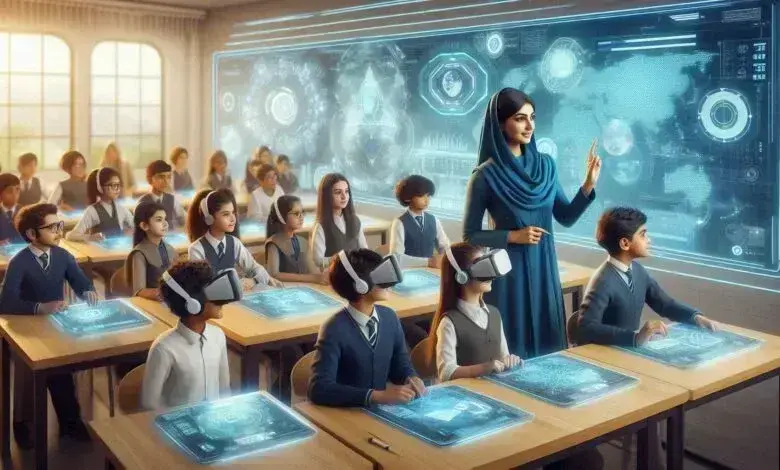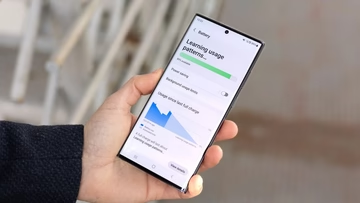
How Pakistani Students Are Using AI for Studies in 2025
|
Getting your Trinity Audio player ready...
|
Yo, students in Pakistan! Ever wondered how artificial intelligence (AI) is changing the way you study? From Karachi to Lahore, AI tools are becoming a big deal for students, helping with everything from writing essays to cracking tough math problems. But how exactly are Pakistani students using AI, and what’s the good, the bad, and the in-between? This guide dives deep into how AI is shaping studies in 2025, comparing its uses, benefits, challenges, and more, all in easy, Pakistani-style English. We’ve pulled insights from trusted sources like The Express Tribune and DigiSkills.pk to keep it real. Let’s break it down!
What’s AI in Studies All About?
AI is like a super-smart buddy that helps with schoolwork. Think tools like ChatGPT, Grammarly, or even apps that solve math problems with a snap of a photo. Pakistani students are using AI to make studying faster, easier, and sometimes even fun. A 2024 study from Bahuddin Zakariya University, Multan, found most students know about AI and use it for academic writing, with 86% of students globally already tapping into AI for studies. In Pakistan, it’s catching on fast, especially in cities like Lahore, Karachi, and Islamabad, but rural areas are joining in too.
How Pakistani Students Are Using AI: A Detailed Comparison
Here’s a detailed look at the main ways Pakistani students are using AI, compared across ease of use, benefits, challenges, cost, and impact on studies. We’ll cover five key areas: academic writing, personalized learning, tutoring, research, and exam prep.
1. Academic Writing (e.g., Essays, Reports)
What They’re Using: Tools like ChatGPT, Grammarly, and QuillBot for writing essays, reports, or fixing grammar.
How It Works: Students type a topic, and AI generates drafts, suggests ideas, or polishes their work.
Ease of Use:
- Super Easy: Grammarly’s browser extension auto-corrects grammar as you type. ChatGPT’s interface is simple—just ask a question, get a response.
- Learning Curve: QuillBot needs some practice to rephrase sentences naturally without sounding robotic.
Benefits: - Saves time: A 500-word essay draft takes minutes with ChatGPT.
- Improves quality: Grammarly catches errors human eyes miss, boosting grades.
- Helps non-native English speakers: Students in rural Punjab or Sindh use AI to write better English.
Challenges: - Over-reliance: Some students copy AI text without editing, risking plagiarism. A 2024 study noted 70.4% of students globally don’t support using ChatGPT for full essays.
- Detection issues: Universities like LUMS use Turnitin, which flags AI-generated text.
- Ethical concerns: Using AI to write entire assignments can undermine learning.
Cost: - Grammarly: Free basic plan; premium is ~PKR 3,000/month.
- ChatGPT: Free basic version; Plus is $20/month (~PKR 5,600).
- QuillBot: Free plan; premium ~PKR 1,400/month.
Impact on Studies: Boosts writing skills and confidence but can dull critical thinking if overused. Students with strong writing skills use AI less, per a global survey. Pakistani Context: Urban students in Lahore’s LGS or Karachi’s City School use Grammarly for polished essays, while rural students rely on free ChatGPT to bridge language gaps.
2. Personalized Learning (e.g., Tailored Lessons)
What They’re Using: Platforms like Khan Academy (with AI features) or Century AI for customized study plans.
How It Works: AI analyzes your weak spots (say, algebra) and creates lessons just for you.
Ease of Use:
- User-Friendly: Khan Academy’s app is simple, with videos and quizzes tailored to your pace.
- Slightly Tricky: Century AI needs teacher setup, less common in Pakistan’s public schools.
Benefits: - Targets weaknesses: A 2024 study says AI improves engagement by personalizing lessons.
- Flexible: Study anytime, perfect for students juggling tuitions in Karachi.
- Rural reach: AI platforms like Khan Academy work offline, helping Balochistan students. Challenges:
- Internet access: Only 37% of Pakistan has reliable internet, limiting rural use.
- Costly setup: Schools need funds for platforms like Century, rare in government schools.
- Limited local content: Most platforms lack Urdu or regional language support.
Cost: - Khan Academy: Free with basic internet.
- Century AI: School subscriptions (~PKR 50,000/year), not student-friendly.
Impact on Studies: Improves understanding and retention, especially for slow learners, but unequal access widens the urban-rural gap.
Pakistani Context: Private schools in DHA Lahore use Century, while rural KPK students lean on free Khan Academy videos.
3. Online Tutoring (e.g., Math, Science Help)
What They’re Using: Apps like Photomath, Socratic, or Tutoria.pk for instant tutoring.
How It Works: Snap a math problem, and AI explains the solution step-by-step.
Ease of Use:
- Dead Simple: Photomath scans problems via phone camera, no typing needed.
- Needs Practice: Socratic requires clear questions for accurate answers.
Benefits: - Instant help: Solves problems in seconds, great for late-night study sessions.
- Affordable: Cheaper than private tutors (PKR 2,000–5,000/month).
- Accessible: Tutoria.pk offers local tutors with AI support, popular in Islamabad.
Challenges: - Limited scope: AI struggles with complex problems or subjective subjects like literature.
- Overuse risk: Students may skip learning basics, just copying AI solutions.
- Data privacy: Sharing photos or questions online raises concerns. Cost:
- Photomath: Free; premium ~PKR 1,500/month.
- Socratic: Free.
- Tutoria.pk: PKR 500–2,000/session.
Impact on Studies: Clarifies concepts quickly but can reduce problem-solving skills if used as a crutch.
Pakistani Context: Photomath is a hit among Matric students in Punjab, while Tutoria.pk grows in urban Sindh.
4. Research and Brainstorming
What They’re Using: Google Bard, Perplexity, or ChatGPT for finding ideas and sources.
How It Works: Ask AI for topic ideas, summaries, or references for projects.
Ease of Use:
- Very Easy: ChatGPT and Bard give quick answers in conversational style.
- Moderate: Perplexity needs specific queries for accurate research links.
Benefits: - Speeds up research: Summarizes articles in seconds, saving hours.
- Idea generation: Helps students stuck on project topics, like “climate change in Pakistan.”
- Global access: Connects students to international resources, vital for O/A Level research.
Challenges: - Inaccuracy: AI can “hallucinate” facts, giving wrong info. A 2023 study flagged this risk.
- Plagiarism risk: Copying AI summaries without citing sources gets flagged.
- Digital divide: Rural students in Balochistan struggle with internet for cloud-based AI. Cost:
- ChatGPT/Bard: Free basic versions.
- Perplexity: Free; premium ~PKR 5,600/month.
Impact on Studies: Cuts research time and sparks creativity but risks misinformation if unchecked.
Pakistani Context: A-Level students in Karachi use Bard for quick summaries, while rural students rely on offline libraries due to connectivity issues.
5. Exam Preparation
What They’re Using: AI quiz apps like Quizlet or RedMarker Systems for practice tests.
How It Works: AI generates quizzes based on your syllabus or past papers.
Ease of Use:
- Simple: Quizlet’s flashcards and quizzes are app-based, easy to navigate.
- School-Dependent: RedMarker needs school adoption, less common in rural areas.
Benefits: - Targeted prep: AI identifies weak areas (e.g., physics formulas) and drills you.
- Time-efficient: Practice anytime, anywhere, even during Lahore’s traffic jams.
- Boosts scores: A Chinese AI tool raised a student’s math score from 50% to 85% in two years. Challenges:
- Cost barriers: RedMarker’s school licenses (~PKR 100,000/year) exclude small institutes.
- Limited syllabus: AI quizzes may not align with Pakistan’s Matric or FSc boards.
- Overconfidence: Relying only on AI prep can skip deeper understanding.
Cost: - Quizlet: Free; premium ~PKR 1,000/month.
- RedMarker: School-based, not individually accessible.
Impact on Studies: Sharpens test skills and boosts confidence but needs human guidance for best results.
Pakistani Context: Quizlet is popular among FSc students in Rawalpindi, while RedMarker is used in elite schools like Beaconhouse.
Detailed Comparison Table
| Aspect | Academic Writing | Personalized Learning | Online Tutoring | Research | Exam Prep |
|---|---|---|---|---|---|
| Tools | ChatGPT, Grammarly, QuillBot | Khan Academy, Century AI | Photomath, Tutoria.pk | Bard, Perplexity | Quizlet, RedMarker |
| Ease of Use | Very easy (Grammarly auto-fixes) | Easy (Khan app); Century needs setup | Super easy (Photomath scans) | Easy (Bard chats); Perplexity needs precision | Simple (Quizlet app) |
| Benefits | Saves time, improves English | Targets weaknesses, flexible | Instant help, affordable | Speeds research, sparks ideas | Boosts scores, efficient |
| Challenges | Plagiarism, over-reliance | Internet access, limited Urdu | Limited scope, privacy risks | Inaccuracy, digital divide | Cost, syllabus mismatch |
| Cost (Monthly) | Free–PKR 5,600 | Free–PKR 50,000 (school) | Free–PKR 2,000 | Free–PKR 5,600 | Free–PKR 1,000 |
| Impact | Boosts grades, risks critical thinking | Improves retention, widens gaps | Clarifies concepts, reduces skills | Cuts time, risks misinformation | Sharpens tests, needs guidance |
| Urban vs. Rural Use | Urban: Polished essays; Rural: Language help | Urban: School platforms; Rural: Free apps | Urban: Tutoria.pk; Rural: Photomath | Urban: Global research; Rural: Offline limits | Urban: Elite schools; Rural: Free apps |
Broader Insights: AI’s Role in Pakistan’s Education
- Urban vs. Rural Divide: Urban students in Lahore’s LGS or Karachi’s Aga Khan use premium AI tools, while rural students in KPK or Sindh stick to free apps due to spotty internet (only 37% coverage).
- Gender Gaps: A 2025 Peshawar study found male medical students show higher AI readiness than females, reflecting cultural barriers.
- Policy Gaps: Pakistan lacks a national AI education policy, unlike India’s Grade 6 coding or China’s AI labs. The Express Tribune notes Pakistan risks falling behind without school-level AI literacy.
- Ethical Concerns: Students worry about data privacy and cheating. A 2024 global survey said 41% see AI as both positive and negative.
- Future Potential: AI could reach 23 million out-of-school kids with scalable learning, but needs infrastructure. Initiatives like DigiSkills.pk are training students in AI skills, a step forward.
Tips for Pakistani Students Using AI
- Start Free: Use free versions of ChatGPT, Khan Academy, or Photomath to test the waters.
- Check Facts: AI can mess up—cross-check research with books or teachers.
- Avoid Cheating: Use AI for drafts or practice, not full assignments. Universities like NUST use AI detectors.
- Learn Skills: DigiSkills.pk offers free AI courses to boost your toolkit.
- Stay Connected: Use WhatsApp groups to share AI tips with classmates in Lahore or Karachi.
- Rural Hacks: Download offline apps like Khan Academy for spotty internet in Balochistan.
Conclusion
AI is a game-changer for Pakistani students in 2025, making studies faster, smarter, and more accessible. From Grammarly polishing essays to Photomath solving equations, students in Lahore, Karachi, and beyond are tapping into AI for writing, learning, tutoring, research, and exams. Urban kids have an edge with premium tools, but free apps are leveling the field for rural students. Still, challenges like plagiarism, internet access, and ethical use need tackling. With no national AI policy, Pakistan’s lagging behind India and China, but initiatives like DigiSkills.pk show promise. Want to try AI? Start with free tools like ChatGPT or Quizlet, and check tribune.com.pk for the latest education trends. Get studying, and let AI be your wingman!



